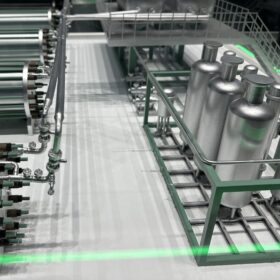KfW Development Bank Pledges €24 Billion for Germany's Hydrogen Network Expansion
Key Ideas
- KfW Development Bank offers a substantial €24 billion grant to support the development of a 9,000 km hydrogen network by 2032 in Germany.
- The loan will bridge the financial gap between high investment costs and low initial revenues for network operators, ensuring affordability for users.
- The hydrogen core network will repurpose existing gas pipelines, construct new hydrogen lines, and play a vital role in transitioning energy-intensive industries to green hydrogen.
- Stefan Wintels, CEO of KfW, emphasizes the importance of the project for the green transition, highlighting the significance of the amortization account for sustainable financing.
KfW Development Bank has committed €24 billion to facilitate the expansion of Germany's hydrogen network, aligning with the country's national hydrogen strategy. The grant aims to address the financial challenges faced by network operators due to high investment costs and low initial revenues. The Federal Network Agency has approved a plan for a 9,000 km hydrogen network by 2032, with KfW's financing playing a crucial role in its realization. The project includes capped network fees to ensure affordability for users, with surplus revenue used to repay the loan once costs are covered. The network will repurpose existing gas pipelines and introduce new hydrogen lines, connecting various key locations. The initiative, set to begin operations next year, is considered essential for the successful transition of energy-intensive industries towards sustainable hydrogen solutions. Stefan Wintels, KfW's CEO, emphasizes the groundbreaking nature of the project and highlights the importance of the amortization account in ensuring a viable financing model for the hydrogen core network.
Topics
Projects
Sustainability
Investment
Energy Transition
Green Energy
Industrial Development
Network Operators
Loan Financing
Pipeline Repurposing
Latest News
